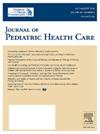提供基于智能手机严肃游戏的干预措施,提高 1 型糖尿病青少年的复原力:可行性研究。
IF 2.5
4区 医学
Q2 HEALTH POLICY & SERVICES
引用次数: 0
摘要
内容简介本研究旨在测试基于智能手机严肃游戏的干预措施的可行性,以促进 1 型糖尿病(T1DM)青少年的复原力:方法:采用双臂可行性研究。招募了患有 T1DM 的青少年。干预组的青少年在一个月内完成了严肃游戏(名为 "WeCan")。我们用招募响应率、后续响应率和满意度等标准评估了可行性和可接受性:共有 61 名患有 T1DM 的青少年参与了这项研究。招募响应率为 62.89%(61/97),干预完成率为 64.52%(20/31)。82%的青少年对WeCan表示满意,他们认为WeCan具有形式活泼、有吸引力、保护隐私、易于操作、改善糖尿病态度等优点:这些研究结果表明,WeCan 在目标人群中具有良好的可行性。结论:这些研究结果表明,WeCan 在目标人群中表现出了良好的可行性,但与健康相关的疗效还需要在今后的研究中加以明确。本文章由计算机程序翻译,如有差异,请以英文原文为准。
Delivering a Smartphone Serious Game-Based Intervention to Promote Resilience for Adolescents With Type 1 Diabetes: A Feasibility Study
Introduction
The aim of this study is to test the feasibility of a smartphone serious game-based intervention to promote resilience for adolescents with type 1 diabetes mellitus (T1DM).
Method
A two-arm feasibility study was employed. Adolescents with T1DM were recruited. Adolescents in intervention group completed the serious game (named “WeCan”) in one month. We evaluated feasibility and acceptability using criteria such as the recruitment response rate, the follow-up response rate, and satisfaction.
Results
Sixty-one adolescents with T1DM were included in this study. The study had a recruitment response rate of 62.89% (61/97) and an intervention completion rate of 64.52% (20/31). Eighty-two percent of the adolescents were satisfied with WeCan, which they perceived to have the advantages of being a lively format, attractive, and privacy, easy to operate, and improved attitude towards diabetes.
Conclusions
These findings suggest that WeCan demonstrated good feasibility among the target population. However, the efficacy of health-related outcomes needs to be clarified in future studies.
求助全文
通过发布文献求助,成功后即可免费获取论文全文。
去求助
来源期刊

Journal of Pediatric Health Care
NURSING-PEDIATRICS
CiteScore
3.40
自引率
10.70%
发文量
140
审稿时长
24 days
期刊介绍:
The Journal of Pediatric Health Care, the official journal of the National Association of Pediatric Nurse Practitioners, provides scholarly clinical information and research regarding primary, acute and specialty health care for children of newborn age through young adulthood within a family-centered context. The Journal disseminates multidisciplinary perspectives on evidence-based practice and emerging policy, advocacy and educational issues that are of importance to all healthcare professionals caring for children and their families.
 求助内容:
求助内容: 应助结果提醒方式:
应助结果提醒方式:


